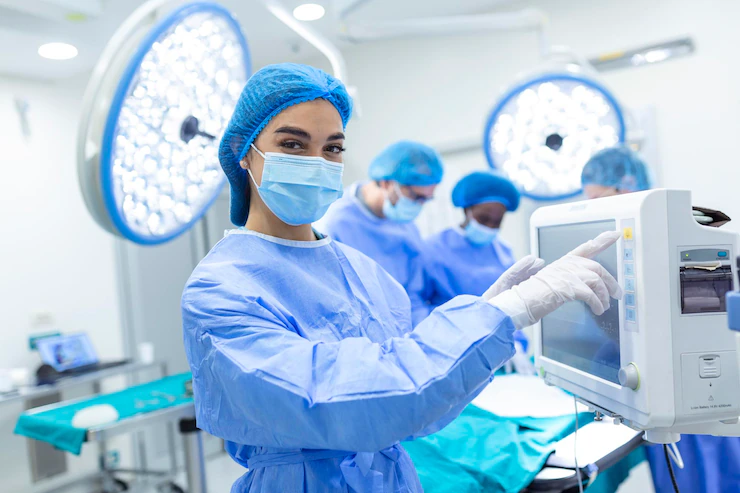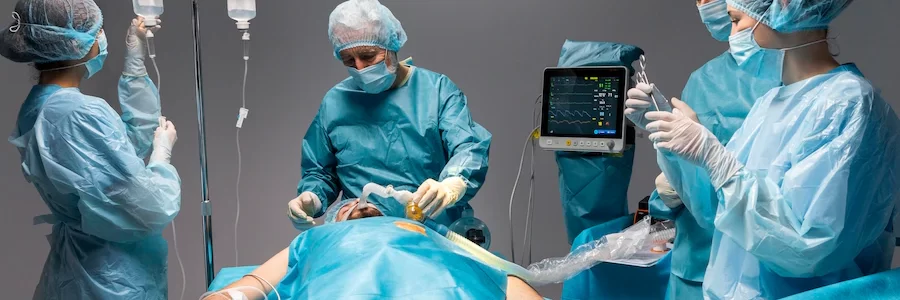

Preparing for surgery is a multifaceted process encompassing both physical and mental readiness. This comprehensive guide provides actionable strategies to effectively prepare for surgery, enhancing your overall well-being and recovery journey. Understanding the importance of pre-operative preparation is vital for patients facing surgical procedures. Many patients experience anxiety and uncertainty before surgery, leading to potential complications. This guide tackles these concerns, offering practical advice on managing stress and optimizing your physical condition to ensure a successful and positive recovery. This article will walk you through several crucial steps, from psychological preparation to physical exercises and communication with your surgical team. This guide will help you navigate the surgical process effectively and achieve a smoother recovery.
Understanding the Importance of Pre-Operative Preparation
The Psychological Impact of Surgery
Surgery, while often a necessary medical procedure, can evoke significant psychological distress in patients. Fear, anxiety, and uncertainty are common emotions, potentially influencing the physical response to the procedure. Addressing these concerns proactively is a crucial component of pre-operative preparation. A strong support system, whether family, friends, or a therapist, plays a critical role in mitigating anxiety and improving overall mental well-being. For example, patients with a strong support network have reported quicker recovery times. A 2019 study published in the Journal of Clinical Psychiatry highlighted the positive correlation between social support and post-surgical recovery.
Physical Preparation for Surgery
Preparing your body physically for surgery is equally important for the procedure’s success and your post-operative recovery. Maintaining a healthy weight, following a balanced diet, and exercising regularly can significantly contribute to a more positive surgical experience and accelerate healing. The American Heart Association (AHA) recommends maintaining a healthy lifestyle, including regular exercise, for overall cardiovascular health, which is especially crucial before surgical procedures.
Managing Anxiety and Stress
Developing Coping Mechanisms
Learning and implementing effective coping mechanisms can help manage the stress and anxiety associated with surgery. Deep breathing exercises, meditation, and mindfulness practices are valuable tools. Journaling or talking to a therapist can also be helpful in processing emotions and alleviating anxieties. Many patients find relaxation techniques such as progressive muscle relaxation or guided imagery helpful in reducing pre-operative stress. These methods are proven to reduce anxiety and improve overall well-being in stressful situations.
Communication with Your Medical Team
Open and honest communication with your medical team is paramount throughout the entire surgical process. Be sure to clearly articulate any concerns, worries, or questions you may have. Ask clarifying questions about the surgical procedure, potential complications, and the recovery process. This proactive communication ensures you feel informed and empowered to make the best decisions for your well-being. The role of the surgical team in alleviating patient anxiety cannot be understated, and clear communication is key to building trust and transparency.
Optimizing Physical Fitness
Importance of Physical Health
Maintaining a healthy physical condition is essential for a positive outcome. A healthy body can help your body heal faster and reduce risks post-surgery. Exercise and a balanced diet contribute to a strong immune system and minimize potential complications. Pre-operative physical activity is encouraged, but adjust the intensity and duration as recommended by your healthcare provider. This ensures your body is prepared to handle the demands of the procedure and the subsequent recovery period. This is crucial in minimizing post-operative complications. Moderate exercise and proper nutrition can minimize the risk of complications.
Pre-Surgical Diet and Hydration
Following your doctor’s dietary guidelines regarding food and drink intake in the days leading up to the surgery is essential. This includes adhering to any prescribed fasting guidelines for medications, reducing the intake of certain foods and drinks, and staying properly hydrated. Adequate hydration is crucial for proper bodily functions and can assist in reducing risks associated with surgical procedures. For example, if undergoing a cardiovascular procedure, maintaining proper hydration levels is particularly important.
Preparing for the Surgical Day
Gathering Necessary Information
Gathering all necessary information and documents ahead of time can alleviate stress on the surgical day. Ensure you have a clear understanding of the procedure, potential risks, and the recovery process. Discuss any pre-existing medical conditions or allergies with the surgical team. This proactive step reduces anxiety and ensures a smoother surgical experience, minimizing complications. Gathering all the necessary information beforehand can significantly reduce stress.
Preparing Your Home Environment
Preparing your home environment can make the recovery process easier and more comfortable. Make sure your home is prepared for your recovery, with a clean, organized space dedicated to relaxation. This can include arranging for assistance with daily tasks or having family/friends stay to assist in the early stages of recovery. Having a supportive home environment can aid in a faster and more comfortable recovery.
Related Post : Deciding If Cosmetic Surgery Is the Right Choice for You
Post-Operative Care
Following Instructions
Following your doctor’s instructions is crucial during the post-operative phase. Be sure to follow any prescribed medication schedule, and communicate any pain, discomfort, or unusual symptoms. Adhering to the post-operative care instructions reduces risks of complications. Understanding your postoperative care plan is key to a successful recovery. Be proactive in asking questions about the process to ensure a smooth recovery.
Rest and Recovery
Prioritize rest and recovery to allow your body to heal effectively. Adequate rest promotes healing and minimizes complications. Listen to your body and avoid strenuous activities, following your doctor’s recommendations. Rest is essential to facilitate healing and minimize post-surgical complications. This is crucial in supporting your body’s recovery process after the surgical procedure.
In summary, preparing mentally and physically for surgery is a crucial step towards a smoother and more positive recovery experience. By focusing on these key areas—mindfulness, emotional support, physical preparation, and pre-operative communication—patients can significantly enhance their chances of a successful outcome. Remember, proactive preparation and open communication with your medical team can empower you throughout the entire surgical process. Schedule a consultation with your surgeon and care team to discuss specific preparations for your upcoming procedure.